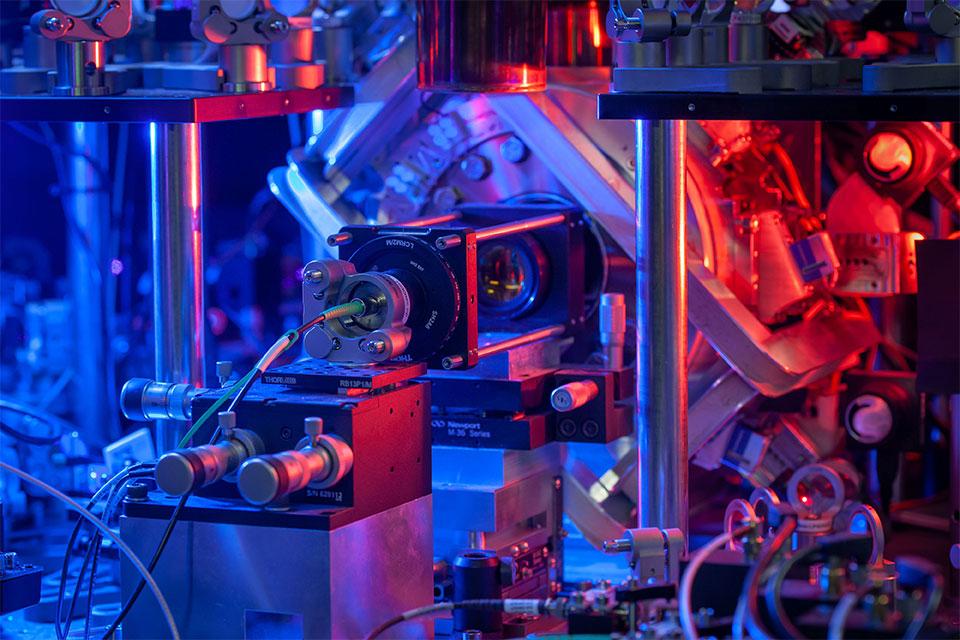The Department of Physics at the University of Oxford is to lead a new national quantum computing hub to develop the technologies needed for the UK to play a key role in the quantum computing – a market estimated to be worth $1.3 trillion by 2035. The hub for Quantum Computing via Integrated and Interconnected Implementations (QCI3) is one of five hubs announced today by UKRI to develop groundbreaking quantum technologies that will directly impact people’s lives.
The QCI3 hub will bring together more than 50 co-investigators with expertise across many different aspects of quantum computing. Twelve of the hub’s co-investigators are from the University of Oxford, collaborating across the departments of Engineering Science, Computer Science, Materials and Chemistry as well as Physics; they will be working closely with researchers from 17 other institutes across the UK. The researchers will also work closely with industry partners to identify and develop real-world applications of quantum computing, including focusing on design for new materials, chemicals, fluid simulation techniques and machine learning. Some 30 industry partners have already pledged £9.9 million of additional support.
The hub will undertake research under three broad themes: improving quantum computing performance through hardware research to show quantum advantage across several platforms; developing networking technologies to address the challenges of building large-scale interconnected quantum computing systems; and building collaborations with application scientists and engineers to develop algorithms suitable for testing the quantum hardware developed.
Professor Andrew Daley from the Department of Physics is the hub’s Principal Investigator: ‘Our hub brings together researchers with broad expertise at the forefront of hardware and software for quantum computing with leading experts in application areas. We will work with our industrial partners to unlock critical challenges in the development of quantum technologies, and drive impact through the development of real-world use cases for quantum computing.’
QCI3 will build on the work of its two predecessors: most recently the Quantum Computing and Simulation (QCS) hub and, prior to that, the Networked Quantum Information Technologies (NQIT) hub. Both hubs were also led from Oxford’s Department of Physics as part of the National Quantum Technologies Programme.
Professor Dominic O’Brien from the Department of Engineering Science is the new hub’s Director and is also currently Director of the QCS hub: ‘The UK has invested in a coordinated National Programme over the past decade, creating a vibrant research and exploitation landscape. In the next decade, the quantum strategy and recently announced quantum missions set ambitious goals for the next phase of the programme. The QCI3 Hub, with Oxford as a lead partner, is very much looking forward to playing a part in delivering these, collaborating with our partners to develop concepts and early demonstrations, training researchers, and engaging with the community.’
Oxford’s Department of Physics has a strong track record in launching quantum spinouts and start-ups, including Oxford Ionics which is harnessing the power of trapped ions and Oxford Quantum Circuits, developing quantum computers based on superconducting devices. The University of Oxford’s significant expertise in quantum science and technology comes together under the recently formed Oxford Quantum Institute that unites more than 60 research groups across the University.
The hubs are delivered by the UKRI Engineering and Physical Sciences Research Council (EPSRC), with a £106 million investment from EPSRC, the UKRI Biotechnology and Biological Research Council, UKRI Medical Research Council, and the National Institute for Health and Care Research.

